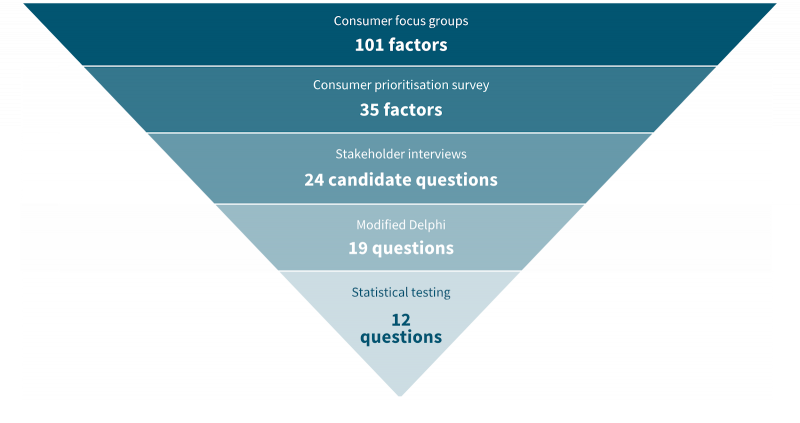How was AHPEQS developed
The Commission developed AHPEQS as the first patient experience survey of patients from all over Australia. The questions are based on what patients stated as being important, and on what clinicians, managers and policymakers told us is practical.
AHPEQS development
The questions were developed through nine phases of qualitative and quantitative research involving consumers, carers, health professionals, academics, managers and policymakers. The process was intended to ensure that AHPEQS:
- Is based on what is important and meaningful to patients and consumers in Australia
- Is quick to complete and simple to understand
- Can be used by health service organisations and governments to identify and further investigate problems with safety and quality from the patient’s perspective.
We started by talking to almost 90 patients, consumers and carers from every Australian state and territory about their recent experiences of hospital and day procedure services. We found that there were 101 factors that made the difference between a good experience and a poor experience for them. We grouped these factors into 20 ‘dimensions of positive experience’.

Asking patients about all 101 important aspects of experience would make a very long survey. So, we did further research with patients, health professionals, policymakers and health system leaders to narrow down this list. We developed a set of 12 key questions which can be applied to a wide variety of patients who are admitted to hospital or who attend day-stay clinics.

AHPEQS testing
Nineteen questions were tested by a small group of patients to ensure they were understood and could be easily answered. They were then used in a pilot study by almost 1,500 patients, and statistical tests were applied to the results to make sure the survey is reliable and valid.
The 19 questions were refined according to the testing results. For example, questions that a proportion of consumers did not find relevant were eliminated or reworded, resulting in the final 12 questions. Further details about the development of AHPEQS can be found in the summary of development and testing.
